Mercedes Trucks launches eActros 600 EV
Batteries could never power HGVs, right? Mercedes thinks different
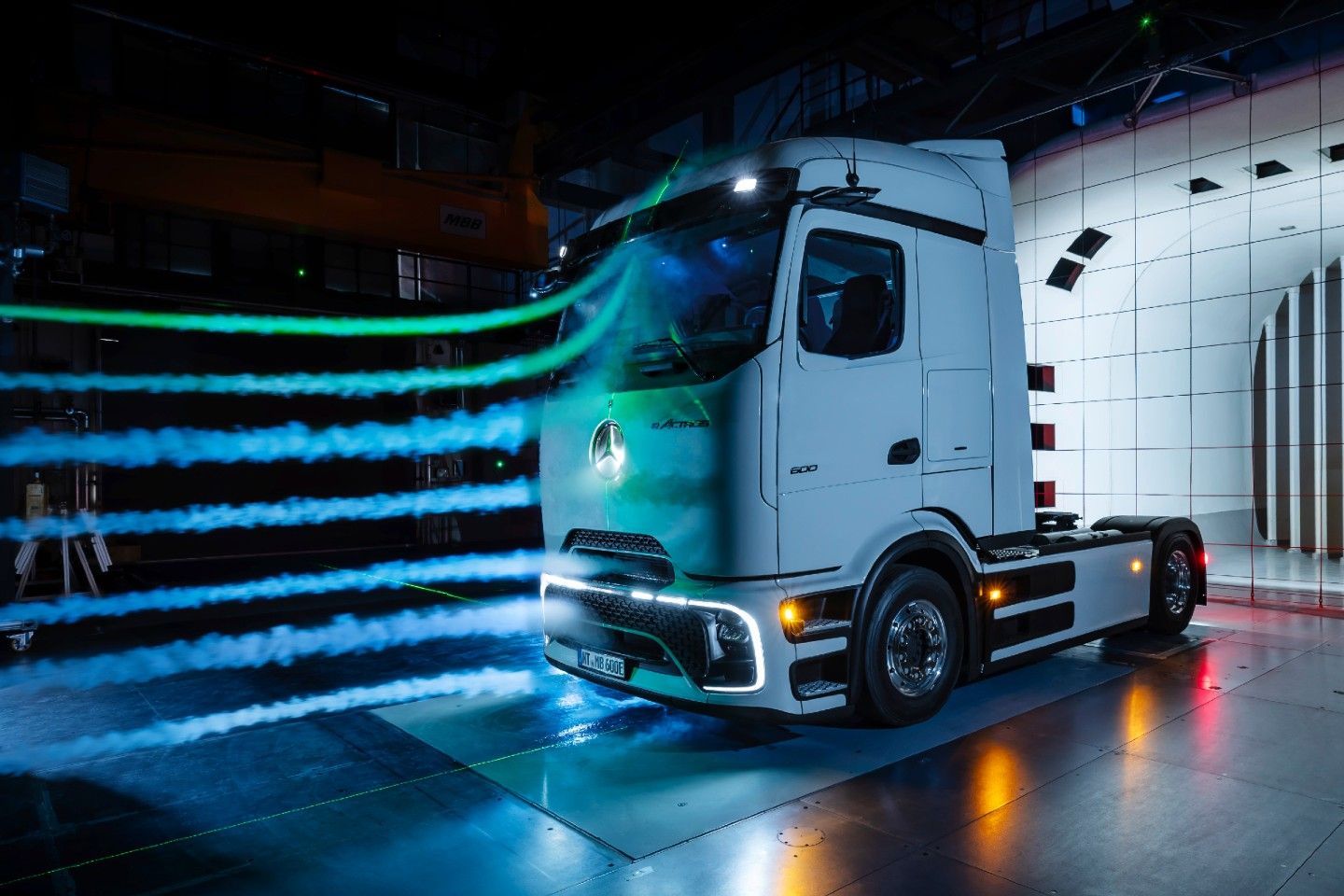
Every aspect of EVs that are criticised - poor cruising range, charging infrastructure, additional weight - would surely make their adoption to haulage vehicles difficult. Even with diesel having to be phased out eventually. Mercedes-Benz hasn’t been deterred, however, and has premiered the eActros 600, a truck with a 22-tonne payload that should be able to cover more than 620 miles in a day - using only battery power.
Yep, the electric HGV is here already. And the numbers are staggering. To get a best case scenario (i.e. Mercedes lab tests) range of 500km, or more than 300 miles, the eActros is fitted with a 621kWh battery. It can charge at up to 400kW CCS, and will have the option of a pre-installation for Megawatt Charging; when that comes on stream, Mercedes says 20-80 per cent of that mammoth battery could take just half an hour. Power is rated at a constant 400kW, or a peak of 600kW, with two motors and an 800-volt electric axle. There are five different levels of brake recuperation, too - hopefully one severe enough for being carved up by a Micra on the A14…
This being a Mercedes Benz, too, the eActros 600 is crammed full of tech. It boasts Active Brake Assist 6 (ABA6), Frontguard Assist, Active Sideguard Assist 2 (ASGA 2) and Active Drive Assist 3 (ADA 3), but you can guaranteed that Micra will still spoil your day. A power inverter can take DC current and convert it into AC for refrigerated trailers. Multimedia Cockpit Interactive 2 keeps the driver up to date on the state of charge and whatnot, with Predictive Powertrain Control making most efficient use of the batteries, motors, and four-speed transmission.
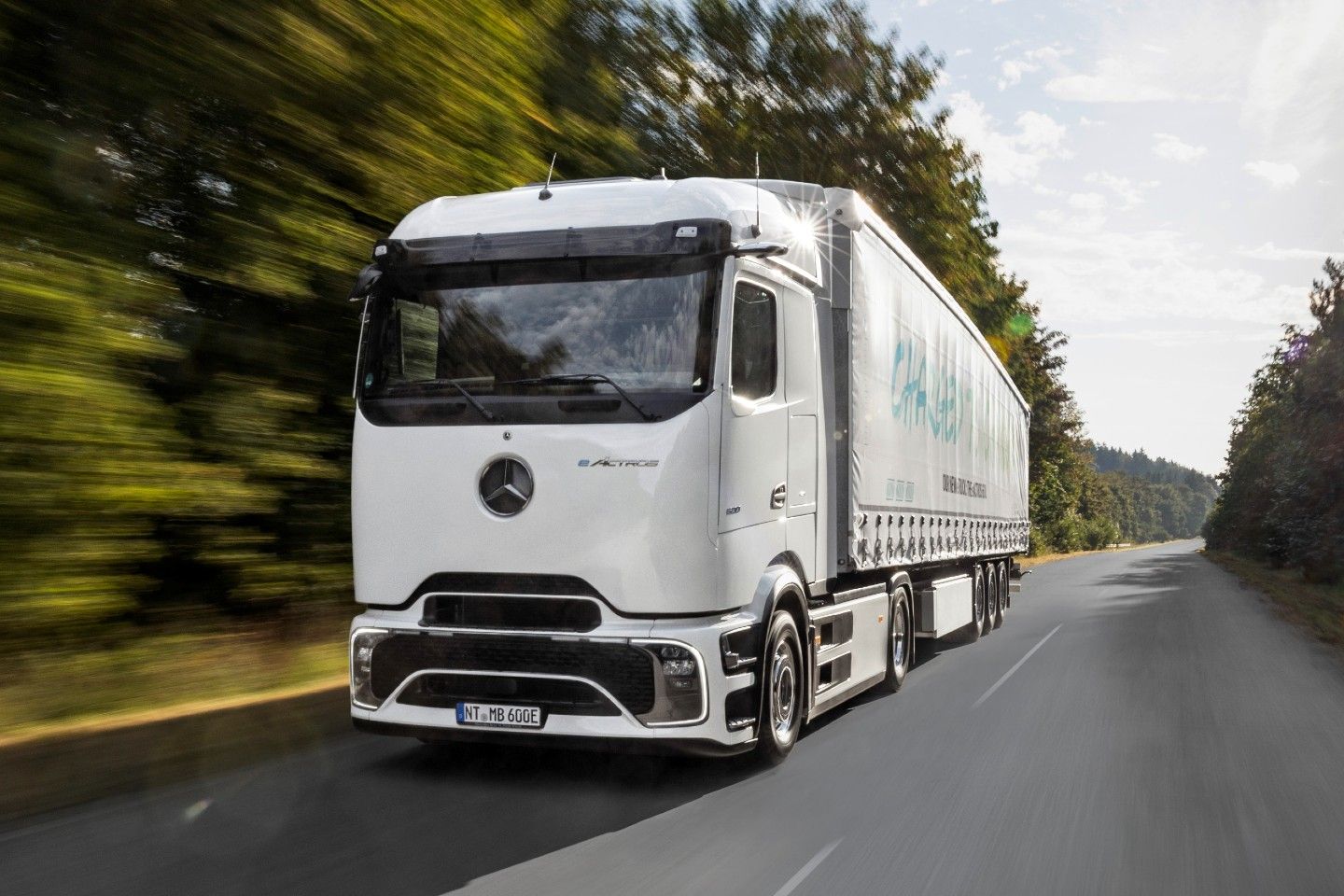
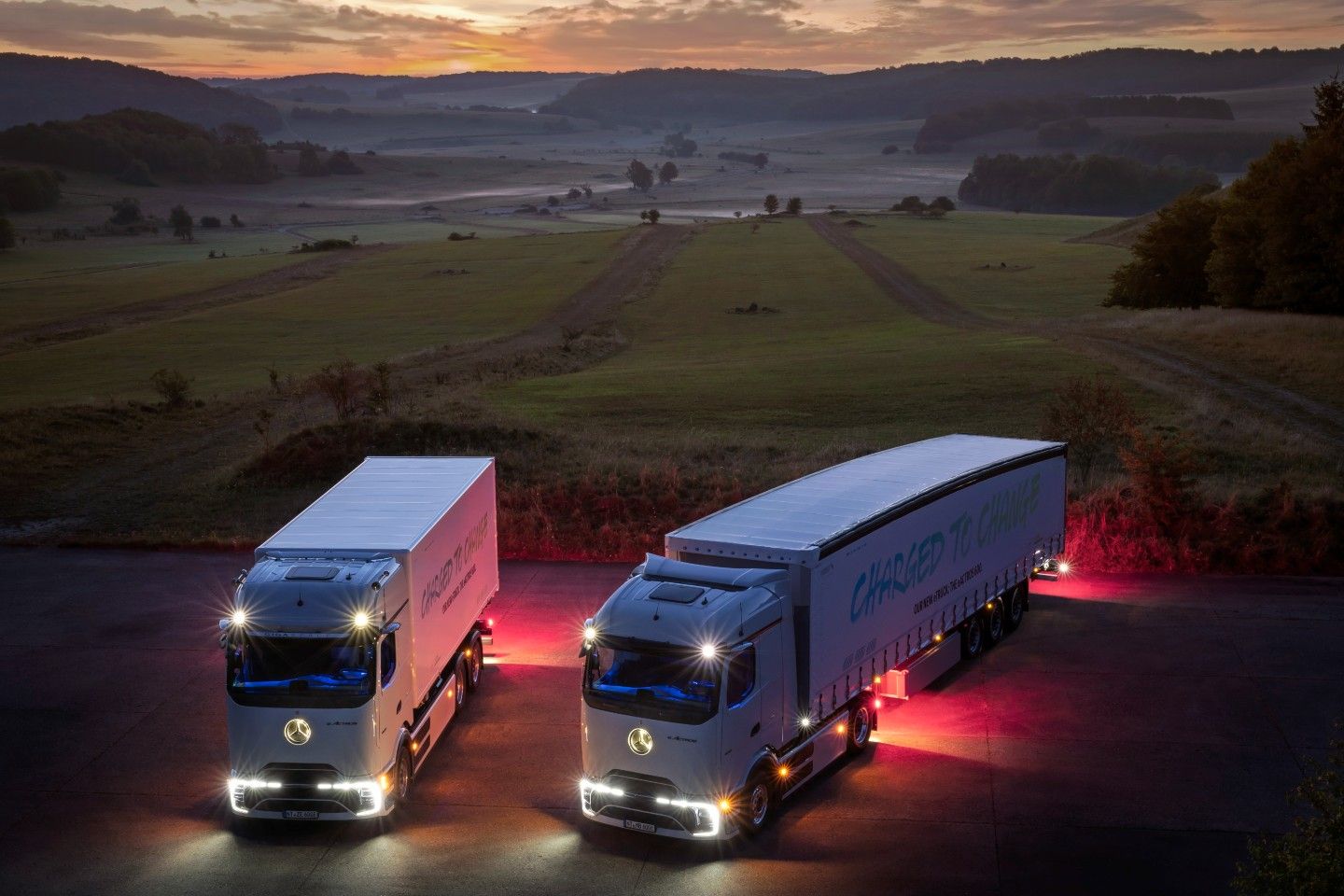
As for battery life and technology, Mercedes says that the lithium iron phosphate design has been engineered to meet the same requirements on the durability of the vehicle and its components as a comparable conventional heavy-duty, long-haul Actros. It reckons that after 10 years and more than a million km of use, the state of health should still be over 80 per cent. During that time, the eActros should save around 40 per cent of the CO2 over a diesel powered equivalent - although that’s with the current mix of power production in Europe. If the energy is fully renewable, that figure grows to more than 80 per cent over a ‘product life cycle of 10 years from raw material extraction’. It’s anywhere between 370 to 775 tonnes of CO2 in that time, with the additional emissions form building the truck offset said to be offset within the first couple of year of long haulage use.
Karin Rådström, CEO Mercedes-Benz Trucks, said: “The eActros 600 stands for the transformation of road freight transport towards CO2-neutrality like no other truck with a three-pointed star. It is characterised by highly innovative drive technology that can offer our customers particularly high energy efficiency and thus profitability. This makes entry into e-mobility even more attractive for fleet operators.”
Speaking of which, sales will kick off in 2023, with series production set for the end of 2024. A fleet of around 50 prototypes is under construction. Best not even ask about a price for the moment. But looks like future of HGV-ing could be coming to a motorway near you sooner than we think…
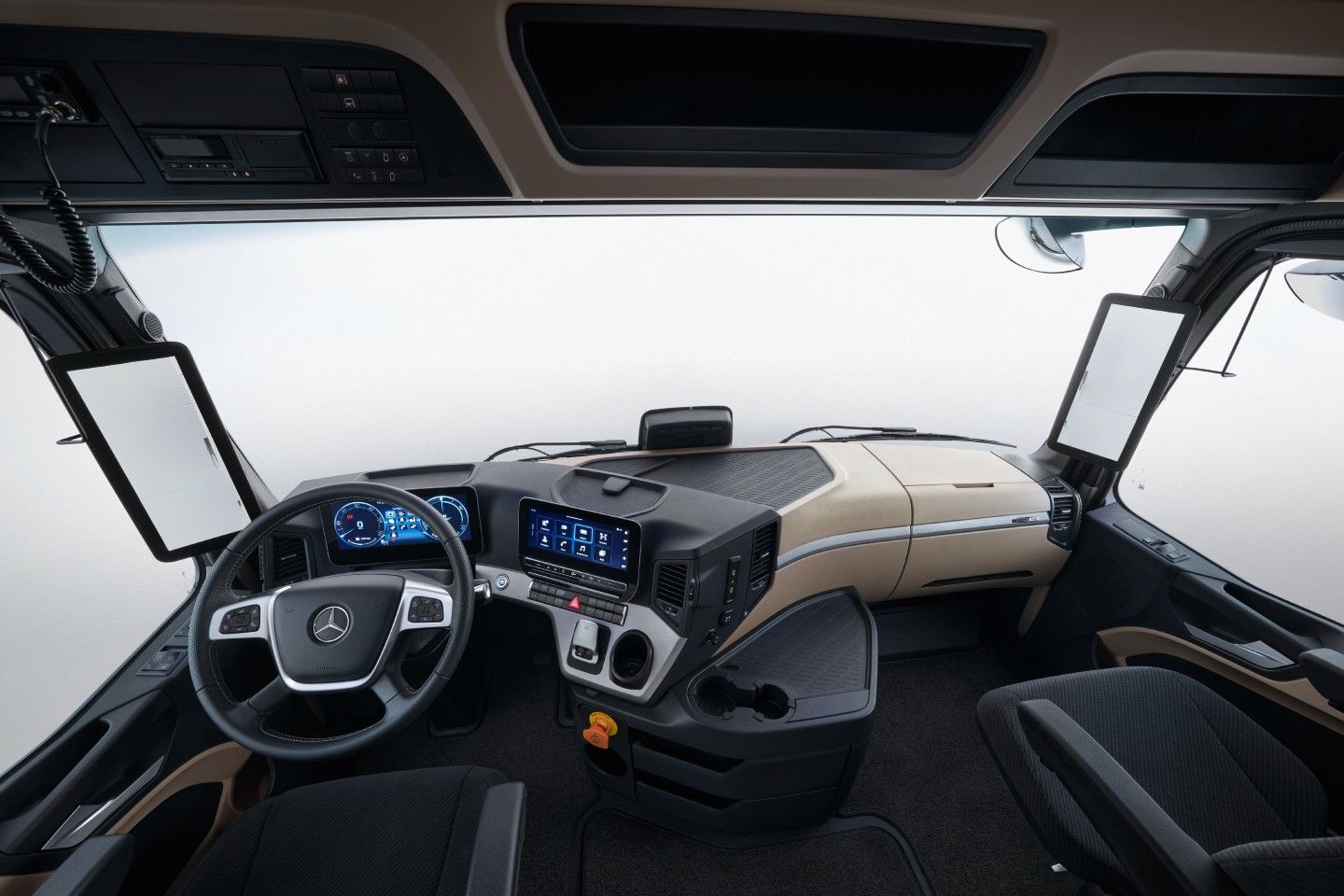
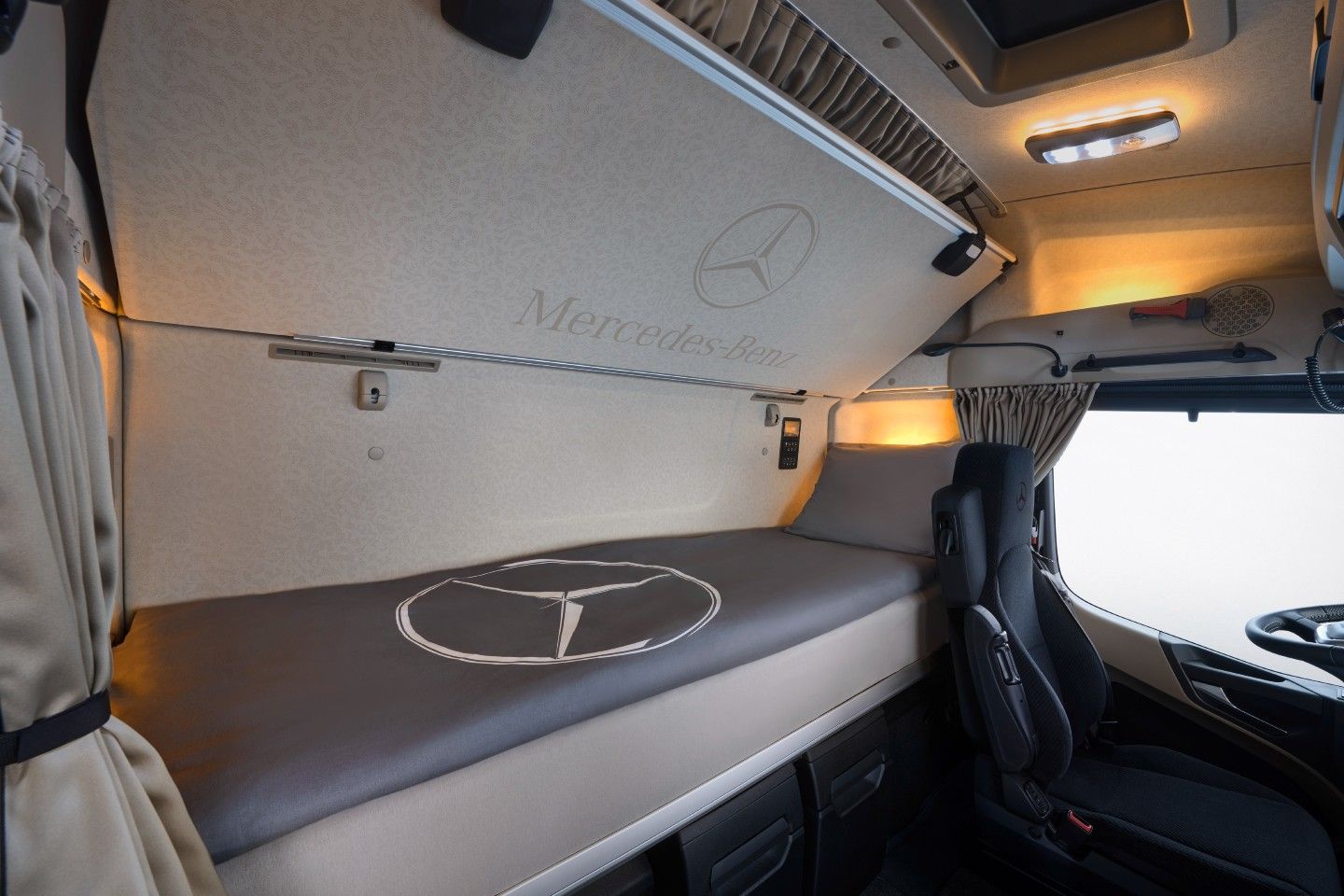
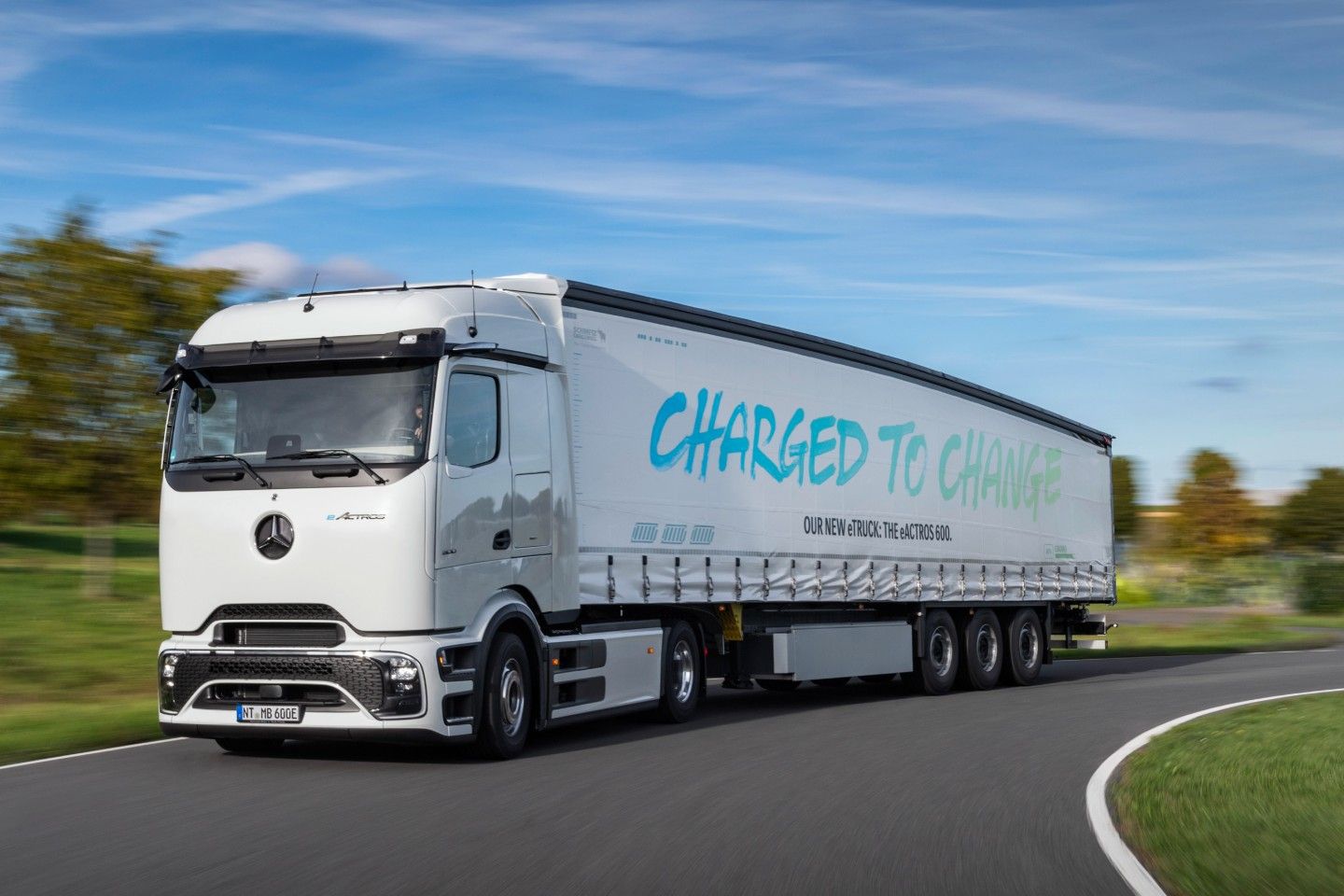
The last non-cabover tractor in Europe was, IIRC, the Scania T-Series, that never really sold.
I can see that going down a storm - not
 k me that'd take a while to fill up on a 3 pin granny charger
k me that'd take a while to fill up on a 3 pin granny charger 
It shows how big an engineering hammer you have to use to get a battery electric truck to meet the typical duty cycle that EU driver hours throws out. The 1MW charger has got to be the ultimate turd in the swimming pool, you'd probably need 50 acres of wind turbines to supply a typical service station.
I'm very much a Hydrogen sceptic for road cars but a fuel cell has to make more sense for vehicles like these unless it's niche applications like fixed routes or last 10 miles in city centres. Even with all the compromises in efficiency and storage.
1. It's sure to be mega expensive
2. Megawatt charging?? How many HGV's are there on the road? If they all go over to electric in a similar manner and they all want to fast charge does anybody realise how much power is going to be needed? We're going to need to recable the whole National Grid and build a few more nuclear power stations cos you won't be getting that kind of power from wind or solar
3. What happens if one of these is in a serious accident and the battery shorts out? We've already seen what happens when an electric car battery explodes and these batteries are over 10 times the size. The resulting inferno will make a conventional diesel fire look like a sparkler.
Just some thoughts.
Update: there are apparently about half a million HGV's on our roads. Do the maths to see how much extra charging capacity and infrastructure will be needed (500,000 MW = 500GW)
Hydrogen is a better bet.
1. It's sure to be mega expensive
2. Megawatt charging?? How many HGV's are there on the road? If they all go over to electric in a similar manner and they all want to fast charge does anybody realise how much power is going to be needed? We're going to need to recable the whole National Grid and build a few more nuclear power stations cos you won't be getting that kind of power from wind or solar
3. What happens if one of these is in a serious accident and the battery shorts out? We've already seen what happens when an electric car battery explodes and these batteries are over 10 times the size. The resulting inferno will make a conventional diesel fire look like a sparkler.
Just some thoughts.
Update: there are apparently about half a million HGV's on our roads. Do the maths to see how much extra charging capacity and infrastructure will be needed (500,000 MW = 500GW)
Hydrogen is a better bet.
1. It's sure to be mega expensive
2. Megawatt charging?? How many HGV's are there on the road? If they all go over to electric in a similar manner and they all want to fast charge does anybody realise how much power is going to be needed? We're going to need to recable the whole National Grid and build a few more nuclear power stations cos you won't be getting that kind of power from wind or solar
3. What happens if one of these is in a serious accident and the battery shorts out? We've already seen what happens when an electric car battery explodes and these batteries are over 10 times the size. The resulting inferno will make a conventional diesel fire look like a sparkler.
Just some thoughts.
Update: there are apparently about half a million HGV's on our roads. Do the maths to see how much extra charging capacity and infrastructure will be needed (500,000 MW = 500GW)
Hydrogen is a better bet.
https://www.rolls-royce-smr.com
Gassing Station | General Gassing | Top of Page | What's New | My Stuff



